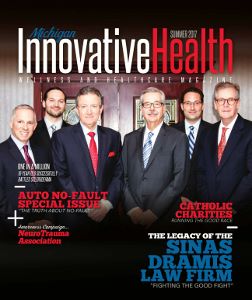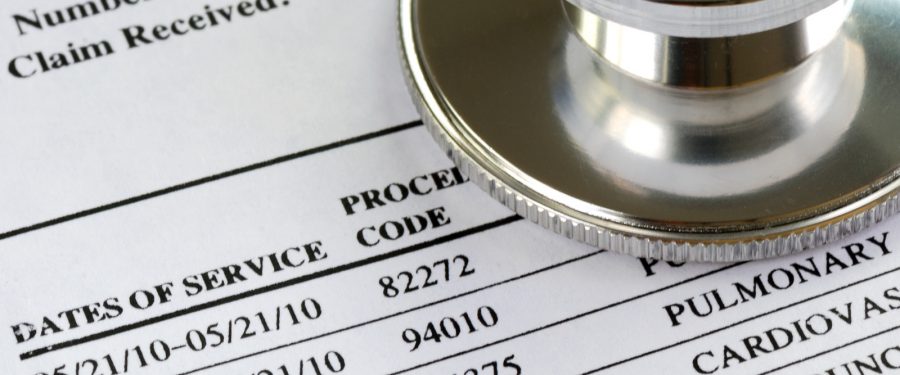No-fault insurance companies typically request that persons injured in a Michigan auto accident undergo what is called an independent medical exam (“IME”). The No-Fault Act specifically allows for this independent medical examination after a car crash victim files a claim for Michigan no-fault benefits. The law says that, when the
Stephen Sinas Talks No-Fault On Lansing-Area Television Program
Lansing auto accident attorney Stephen Sinas discussed the current state of Michigan’s no-fault insurance system on the August 10, 2017, edition of “Open Line,” a live television call-in program. Stephen is a leading authority on Michigan no-fault law. He also serves as legal counsel for the Coalition Protecting Auto No-Fault
Sinas Dramis Lawyers Write No-Fault Content For Statewide Publication
As leading authorities on the Michigan no-fault insurance system, the team of Michigan car accident attorneys at the Sinas Dramis Law Firm wrote the content for the most recent edition of Michigan Innovative Health Magazine, which focused on auto no-fault law. Michigan Innovative Health Magazine is a statewide publication that
Appellate Court Nixes “Innocent Third-Party Rule” In PIP Cases Involving Fraud
The “innocent third-party rule” in Michigan no longer exists in cases of insurance fraud — at least until the state Legislature decides to create such a rule, the Michigan Court of Appeals announced in Bazzi v Sentinel Ins Co (Docket No. 320518). As a result, innocent third parties, including medical
Crucial Medical Provider Reimbursement Case Heads To Michigan Supreme Court
Can hospitals, doctors and other medical service providers file their own lawsuits against no-fault insurers, seeking reimbursement for services they’ve rendered to persons injured in car crashes? If so, can these treatment providers protect their right to reimbursement by sending written notice to no-fault insurers of their intent to collect payment on their own?
Some Insurers Are Engaging In “Preferred Provider” Persuasion
Persons who are injured in auto accidents have the right to select their own doctors — insurance company’s cannot dictate “preferred providers.” The Michigan Supreme Court made this “right to choose” clear in Morgan v Citizens Ins Co, 432 Mich 640 (1989), when it said that Michigan’s no-fault law “preserves
Appellate Court: “Cousin By Marriage” Isn’t A “Relative” For PIP Benefits
A “cousin by marriage” relationship does not satisfy the definition of “relative” in the No-Fault Act, according to the Michigan Court of Appeals. In Lewis v Farmers Ins Exchange, an April 19 published decision, the injured person asserted that she resided with, and was a “cousin by marriage” to, Tamekiah
A Stitch in Time: Supreme Court Softens the One-Year Notice Rule in PIP Cases
There’s nothing that rattles a lawyer’s nerves like an impending statute of limitations deadline. And there aren’t many statutes of limitations that come sooner than one year. It’s no wonder, then, that lawyers who handle no-fault cases frequently find themselves a bit jittery due to the one-year notice rule and/or
Medical Providers Need to Be Proactive When Seeking Payment through No-Fault Insurance
The Covenant Medical Center case shows that medical providers treating auto accident survivors under the No-Fault Act must protect their right to reimbursement. Last week, the Court of Appeals decision released its decision in the case of Covenant Medical Center v State Farm. The decision turned out to be a welcomed
State Of Michigan: Insurance Sliding Will Not Be Tolerated
“Insurance sliding” shows exactly why discussions about fraud must also include illegal insurance industry practices. Insurance sliding is a deceptive and predatory tactic that’s practiced by insurance agents to the detriment of their clients. According to the State of Michigan’s Department of Insurance and Financial Services, sliding is: “an agent’s










